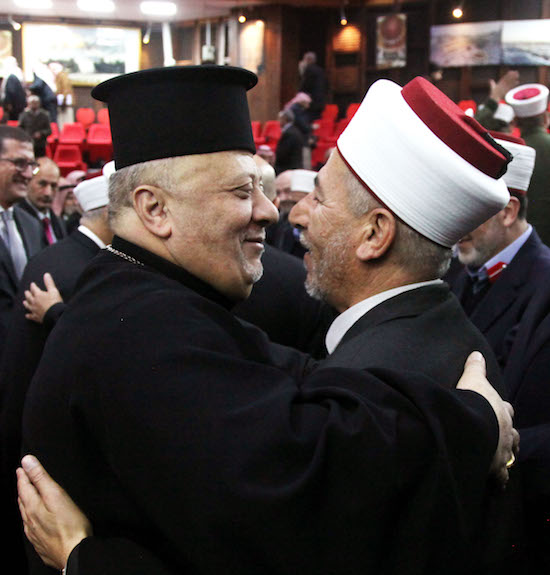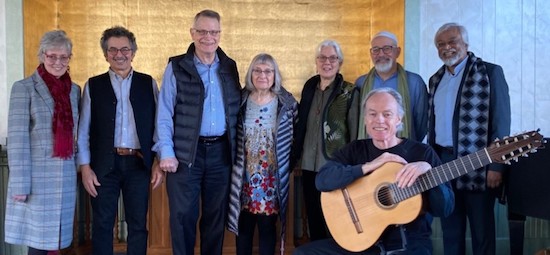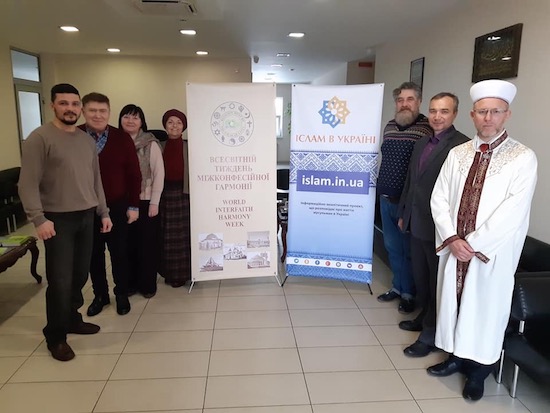2020 Winners
The judges received 122 applications for the prize from over 1,543 events held in total. The judges are highly appreciative of all the efforts of all those who held events and applied for the prize. They wish they could reward all who held an event, but are consoled by the fact that good deeds are their own reward so that everyone who held an event—whether they applied for the prize or not—is a true winner.
In judging, the judges took into consideration the excellence of efforts, collaboration and impact of events. They looked carefully at efforts made despite scantiness of resources, but also took into consideration consistent efforts made over the years. They further took into consideration whether events were consistent with the text of the UN Resolution establishing the Prize. Accordingly, judges did not reward movements towards religious syncretism but rather rewarded events which respected each religion as it is. Finally, in accordance with the terms of the Prize, judges rewarded events specifically celebrating the World Interfaith Harmony Week rather than good interfaith work in general.
Accordingly, the judges are delighted to announce:
الأردن انموذج الوئام بين اتباع المذاهب والأديان
Jordan is a model of harmony between followers of doctrines and religions
Hashemite Kingdom of Jordan Ministry of Religious Affairs (Jordanian Awqaaf)
Amman, Jordan
The Ministry of Religious Affairs (Jordanian Awqaaf) marked the World Interfaith Harmony Week with seminars across the country entitled “Jordan as a model of harmony between followers of different doctrines and religions”.
The Awqaf Minister Muhammad Al-Khalayleh emphasized Jordan’s adherence to values and principles of harmony. Al-Khalayleh said that the call to harmony is at the core of Islamic law and has been demonstrated throughout Islam’s history.
Other notables included, the Grand Mufti of the Kingdom, Abdul Karim Khasawneh, who spoke of the pride Jordanians, both Muslims and Christians, have of the history of their coexistence. Judge Abdel Hafez Al-Rabta referred to the Covenant of Umar when recalling the Hashemite right and responsibility in guardianship of the Muslim and Christian places of worship in Jerusalem, Al-Quds Al-Sharif. Father Nabil al-Haddad said that in Jordan, people learn about harmony in its mosques, churches, and schools. He pointed out that in Jordan, harmony is not seasonal, not limited to the first week of February, but is a permanent situation 52 weeks in a year.
Interfaith Community Sanctuary
Seattle, USA
World Interfaith Harmony Worship Service
“Love of the Good & Love of the Neighbor"
Reflections and shared spiritual practices to seek understanding on the state of our world and our concerns about Refugees, Homelessness, Religious Bias, Suffering, and the Goodness of Life and Love.
Special guest speakers from different faith traditions each sharing insights about crucial topics of our time; homelessness, immigration, refugees, interfaith harmony and interfaith dialogue. This aim was to honor and discuss topics of relevance to our everyday lives and our immediate communities when we engage in Interfaith worship. It is not enough to promote loving harmony on a theoretical level. Anyone can do that. But how many of us engage in the conversation about what we can do right here, right now, in our own neighborhoods, with our own neighbors, to make the world a more congenial and loving place? "Who is our neighbor?" is a timeless and urgent question. "How can we serve our neighbors in need?" This question requires deep soul-searching and the preparation of fertile ground for creative ideas to spring forth. All this happens best in loving community.
We gathered the wider community together to look with clear vision at these heartbreaking realities that are all our responsibility. Collectively we seek to find the goodness and love in our hearts to move forward toward solutions and new kind caring from a depth as yet untapped.
As a community, we endeavor to live in the openness of heart and compassionate understanding that embraces all life. As a spiritual organization, we are collectively organized to thrive through listening, sharing, and caring for one another. As individuals in awe of the Divine, we support and respect one another’s personal spiritual path and spiritual practices.
Spiritual Council of the Muslims of Ukraine and All-Ukrainian Council of Religious Organisations (VRRO)
Kyiv, Ukraine
A guided tour to and acquaintance with the programs and activities of the Central Mosque of the Spiritual Council of the Muslims of Ukraine. The guided tour to the Central Mosque of the Spiritual Center of the Muslims of Ukraine (UMMA) gave an overview of the activities and programs of the Muslims in Ukraine. Mufti Said Ismagilov presented the programmes and activities of its school, talked about educational, social and interfaith programs. Many questions were raised by the participants about different streams of Islam, about beliefs and practices. Observing the communal prayer at the Mosque gave the participants a strong knowledge about peaceful and inclusive Islam.
Many, many congratulations to the winners and to all those who took part in World Interfaith Harmony Week 2020.
All Praise belongs to God Alone.
The Judges
- HRH Princess Areej Ghazi
- HB Patriarch Theophilus III – Patriarch of the Holy City, Palestine and Jordan
- HE Sheikh Dr Ali Gomaa – former Grand Mufti of the Arab Republic of Egypt
- HE Bishop Munib Yunan – Bishop of the Evangelical Lutheran Church in Jordan and the Holy Land, and President of the World Federation of Evangelical Lutheran Churches
- Sheikh Usama al-Sayyid Al-Azhari – Professor at Al-Azhar University
- Father Nabil Haddad – Founder and Executive Director of the Jordanian Interfaith Coexistence Research Centre
- Dr Minwer Al-Mheid – Director of the Royal Aal Al-Bayt Institute for Islamic Thought



